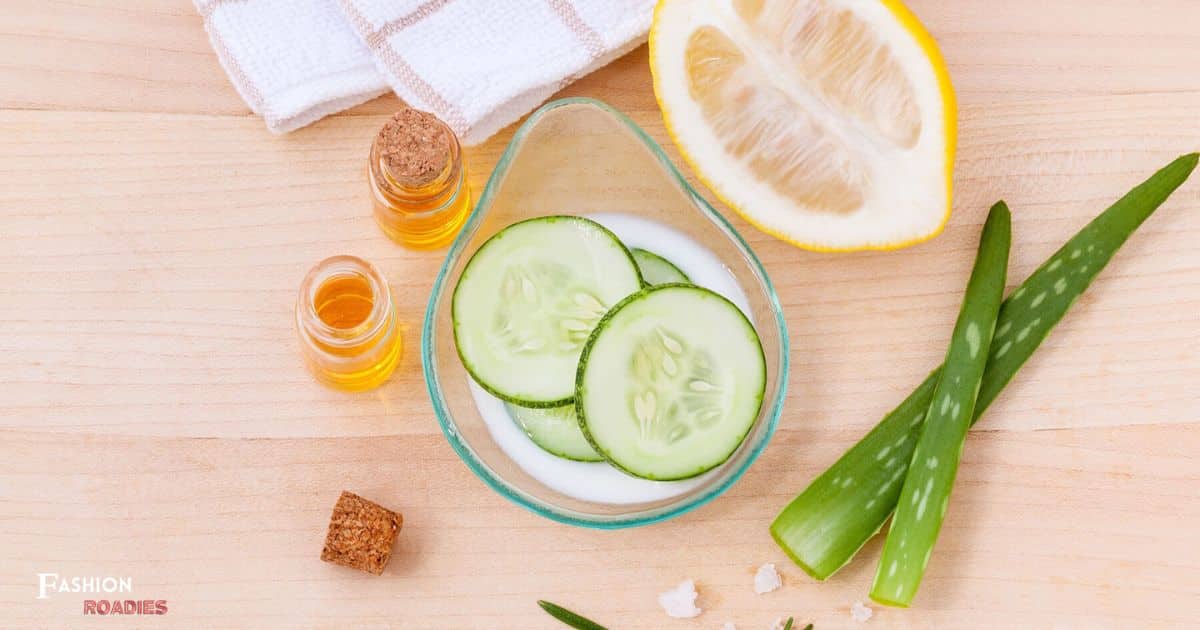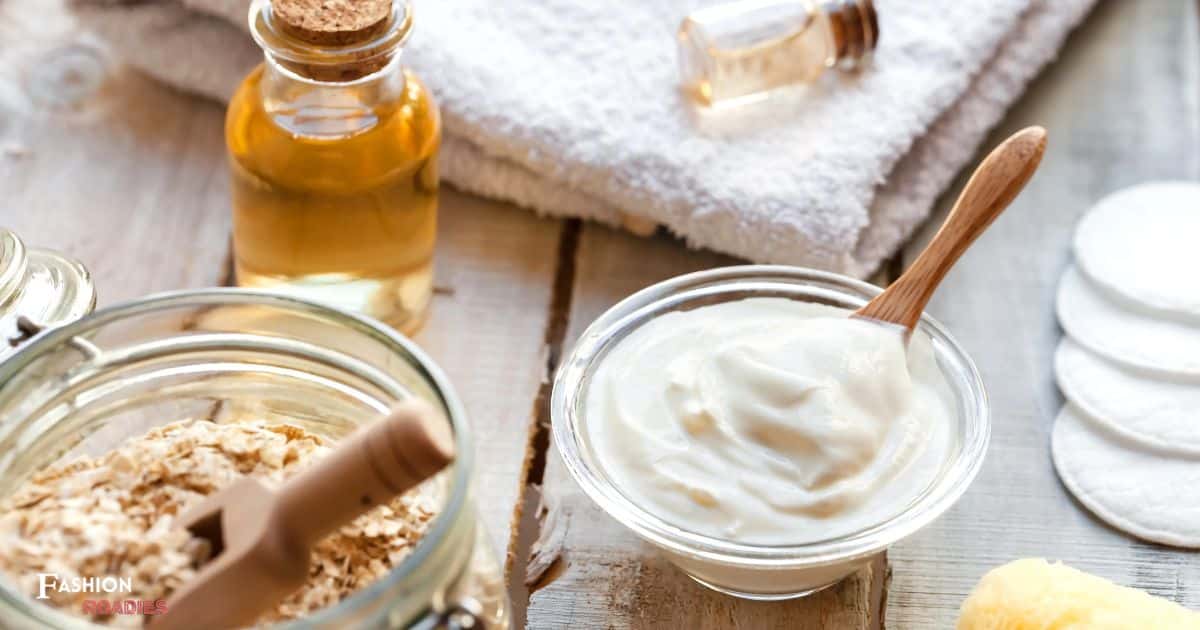Unlock the secrets to radiant, healthy skin with our comprehensive guide on how to make DIY skincare. Delve into the art of crafting personalized cleansers, face masks, moisturizers, and serums, tailored to your unique skin type and concerns. Embrace the power of nature as you gather essential ingredients and embark on a journey of self-care and self-expression. Join a community of skincare enthusiasts who prioritize self-love and embrace the beauty of belonging to a supportive, nurturing tribe. Your journey to glowing skin starts here.
Key Takeaways
- Understanding your skin type is essential for DIY skincare.
- When choosing a cleanser, consider your skin type and look for gentle ingredients.
- Natural cleansers are a more gentle and environmentally friendly option.
- Targeted serums and lip/body care products are important for addressing specific skin concerns and overall skin health.
Determine Your Skin Type
To accurately determine your skin type, you need to understand the specific characteristics and needs of your skin. This knowledge is essential in developing an effective skincare routine that caters to your unique requirements. Skin types can generally be categorized into four main categories: oily, dry, combination, and sensitive. Oily skin tends to produce excess sebum and may be prone to acne and breakouts.
Dry skin lacks hydration and often feels tight and rough. Combination skin exhibits both oily and dry areas, with the T-zone (forehead, nose, and chin) being oilier. Sensitive skin is easily irritated and may experience redness and reactions to certain products. By identifying your skin type, you can choose skincare products and treatments that specifically address your concerns, promoting a healthier and more balanced complexion.
Gather Essential Ingredients
To gather essential ingredients for your DIY skin care routine, you will need to carefully select high-quality and beneficial components. Here are five key ingredients that can provide effective results for your skin:
- Hyaluronic Acid: Known for its hydrating properties, hyaluronic acid helps to retain moisture in the skin, keeping it plump and smooth.
- Vitamin C: This powerful antioxidant brightens the skin, reduces hyperpigmentation, and stimulates collagen production, resulting in a more youthful complexion.
- Rosehip Oil: Rich in essential fatty acids and vitamins, rosehip oil helps to regenerate skin cells, improve elasticity, and fade scars and blemishes.
- Green Tea Extract: Packed with antioxidants, green tea extract protects the skin against environmental damage, soothes inflammation, and helps to reduce redness.
- Aloe Vera Gel: With its soothing and healing properties, aloe vera gel moisturizes the skin, calms irritation, and promotes a healthy complexion.
Choose a Cleanser That Works for You
When it comes to choosing a cleanser for your skin, it is important to consider your skin type. Different skin types require different types of cleansers, whether it be for oily, dry, or sensitive skin. Additionally, you may also want to consider the option of natural cleansers versus commercial ones, as natural cleansers often contain fewer chemicals and can be gentler on the skin.
Skin Type and Cleansers
Selecting the appropriate cleanser for your skin type is crucial in achieving optimal results for your DIY skincare routine. Here are some key factors to consider when choosing a cleanser:
- Skin type: Determine your skin type (e.g., dry, oily, combination) to find a cleanser that addresses your specific needs.
- Ingredients: Look for cleansers with gentle and nourishing ingredients that won’t strip your skin of its natural oils.
- pH balance: Opt for a cleanser with a pH level that matches your skin’s natural pH to maintain its health and balance.
- Texture: Consider the texture of the cleanser, such as gel, cream, or foam, based on your preference and skin type.
- Specific concerns: If you have specific skin concerns like acne or sensitivity, choose a cleanser that targets those issues.
Understanding your skin type and choosing the right cleanser will lay the foundation for an effective DIY skincare routine. Now, let’s explore the benefits of natural versus commercial skincare products.
Natural Vs. Commercial
The choice between natural and commercial skincare products is an important consideration when selecting a cleanser that suits your individual needs. Natural cleansers are often preferred by those who desire a more holistic approach to skincare. These products are typically made with organic and plant-based ingredients, free from harmful chemicals and synthetic fragrances.
On the other hand, commercial cleansers are mass-produced and readily available in stores. They often contain a combination of artificial ingredients and preservatives, which can be effective in targeting specific skin concerns. To help you make an informed decision, here is a comparison between natural and commercial cleansers:
| Natural Cleansers | Commercial Cleansers |
|---|---|
| Free from harmful chemicals | May contain artificial ingredients |
| Organic and plant-based | Mass-produced |
| Gentle on the skin | Target specific skin concerns |
| Environmentally friendly | Easily accessible |
Considering your personal preferences, skin type, and specific concerns, you can choose the cleanser that aligns with your values and addresses your skincare needs. Now, let’s move on to the next section and learn how to customize your DIY face masks.
Customize Your DIY Face Masks
When it comes to customizing your DIY face masks, there are a variety of ingredient options available. From soothing aloe vera to exfoliating oatmeal, you can mix and match ingredients based on your specific skin concerns. Additionally, understanding the proper mixing techniques can enhance the effectiveness of your face masks and ensure optimal results.
Ingredient Options for Customization
To customize your DIY face masks, it is essential to carefully consider the ingredients you will use. The right ingredients can help address specific skin concerns, provide nourishment, and give your skin a healthy glow. Here are some ingredient options you can consider:
- Aloe vera: Known for its soothing properties, aloe vera can help calm irritated skin and reduce redness.
- Honey: A natural humectant, honey helps to moisturize and hydrate the skin, leaving it soft and supple.
- Turmeric: With its anti-inflammatory properties, turmeric can help reduce acne and promote a more even skin tone.
- Green tea: Rich in antioxidants, green tea can help fight free radicals and protect the skin from environmental damage.
- Yogurt: Packed with lactic acid, yogurt can gently exfoliate the skin, revealing a brighter complexion.
Targeting Specific Skin Concerns
One key aspect of customizing DIY face masks is targeting specific skin concerns. By identifying your specific skin concerns, you can create a face mask that addresses those issues effectively. Whether you are dealing with acne, dryness, or signs of aging, there are various ingredients that can help improve your skin’s condition.
To help you understand which ingredients are suitable for your specific skin concerns, here’s a table that outlines some common skin concerns and the corresponding ingredients you can incorporate into your DIY face masks:
| Skin Concern | Suitable Ingredients |
|---|---|
| Acne-prone skin | Tea tree oil, clay, |
| aloe vera | |
| Dry skin | Honey, avocado, |
| coconut oil | |
| Aging skin | Retinol, vitamin C, |
| hyaluronic acid |
Mixing Techniques for Effectiveness
First, ensure that you mix your DIY face masks thoroughly to maximize their effectiveness. Proper mixing techniques can enhance the potency of the ingredients and provide optimal results for your skin. Here are some key tips to consider when mixing your DIY face masks:
- Measure the ingredients accurately to maintain the right balance and potency.
- Use a clean mixing bowl and utensils to prevent contamination and maintain hygiene.
- Mix the ingredients in a smooth and consistent manner to ensure even distribution.
- Consider using a whisk or blender for a smoother texture and easier application.
- Allow the mask to sit for a few minutes after mixing to allow the ingredients to meld together and activate their beneficial properties.
Nourish Your Skin With Homemade Moisturizers
Homemade moisturizers can nourish your skin effectively. When it comes to taking care of our skin, using natural ingredients can be a great way to provide the nourishment it needs. Making your own moisturizers allows you to customize the ingredients to suit your skin type and preferences. Whether you have dry, oily, or sensitive skin, there are various homemade moisturizer recipes available that can cater to your specific needs.
From hydrating oils like jojoba and coconut oil to soothing ingredients like aloe vera and honey, these homemade moisturizers can provide the necessary hydration and nutrients to keep your skin healthy and glowing. As we explore further, we will also discuss how to treat specific skin concerns with targeted serums, which can work hand in hand with homemade moisturizers to achieve optimal results.
Treat Specific Skin Concerns With Targeted Serums
To address specific skin concerns, incorporating targeted serums into your skincare routine is essential. These powerful formulations are designed to deliver potent ingredients directly to the skin, providing specialized treatment for a range of issues. Whether you’re dealing with acne, aging, hyperpigmentation, or dryness, there’s a serum out there to help. Here are five types of targeted serums that can address specific skin concerns:
- Hyaluronic Acid Serum: Hydrates and plumps the skin, reducing the appearance of fine lines and wrinkles.
- Vitamin C Serum: Brightens the complexion, fades dark spots, and protects against environmental damage.
- Retinol Serum: Stimulates collagen production, improves skin texture, and reduces the signs of aging.
- Niacinamide Serum: Balances oil production, minimizes pores, and calms inflammation.
- Peptide Serum: Boosts collagen and elastin production, promoting firmness and elasticity.
Don’t Forget About Your Lips and Body
Additionally, it is important to regularly care for your lips and body to maintain overall skin health and hydration. While we often focus on our face when it comes to skincare, neglecting our lips and body can lead to dryness, flakiness, and discomfort. To keep your lips soft and supple, consider using a lip balm enriched with nourishing ingredients like shea butter or coconut oil.
Applying it throughout the day will help to lock in moisture and prevent chapping. When it comes to your body, opt for a moisturizer that suits your skin type and apply it generously after showering or bathing. This will help to replenish moisture and keep your skin smooth and hydrated. Remember, taking care of your lips and body is just as important as caring for your face to achieve overall skin health and nourishment.
FAQ’s
Can I Use the Same Cleanser for Both My Face and Body?
It is generally recommended to use separate cleansers for the face and body, as the skin on these areas have different needs and sensitivities. Using a cleanser specifically formulated for each area can help maintain optimal skin health.
How Often Should I Use a DIY Face Mask?
The frequency of using a DIY face mask depends on your skin type and the ingredients used. Generally, it is recommended to use a face mask 1-2 times a week to allow your skin to reap the benefits without overdoing it.
What Are Some Common Skin Concerns and How Can I Address Them With Targeted Serums?
Addressing common skin concerns with targeted serums requires understanding the specific concern, such as dryness, acne, or aging. By selecting serums with ingredients like hyaluronic acid, salicylic acid, or retinol, one can effectively combat these concerns and achieve healthier, more radiant skin.
Are There Any Natural Ingredients That Can Help With Dark Spots and Uneven Skin Tone?
Dark spots and uneven skin tone can be improved by using natural ingredients such as vitamin C, kojic acid, licorice extract, and niacinamide. These ingredients have been shown to help brighten the skin and reduce hyperpigmentation.
Can I Use Homemade Moisturizers on My Body as Well as My Face?
Homemade moisturizers can be used on both the body and face, as long as they are formulated with suitable ingredients. However, it is important to consider individual skin types and sensitivities before applying any DIY skincare products.
Conclusion
In the world of DIY skin care, the possibilities are endless. From determining your skin type to customizing your own face masks and moisturizers, you have the power to create a personalized routine. Don’t forget about your lips and body too, as they also deserve some TLC. So go ahead and embark on this journey of self-care, because who needs store-bought products when you can create your own ironic masterpiece for your skin?










